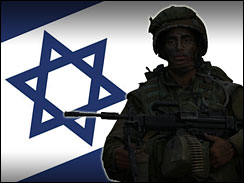Injured Palestinians in Cairo fear for families in Gaza
 Cairo - "Daddy, could you bring us some gas with you on your way back," Sami's daughter told him when he called to check on her. Sami Saleh, a 37-year-old Palestinian, was one of the few who crossed the Rafah border into Egypt to be treated from his injuries.
Cairo - "Daddy, could you bring us some gas with you on your way back," Sami's daughter told him when he called to check on her. Sami Saleh, a 37-year-old Palestinian, was one of the few who crossed the Rafah border into Egypt to be treated from his injuries.
On December 27, Israel launched air raids on the Hamas-controlled Gaza Strip, while the ground operation started last Saturday. Palestinian casualties reached more than
600 dead and 2,600 injured, while more than 700 targets in Gaza have been hit.
Despite his severe pain, Sami thinks of his four daughters and wife he left behind in Gaza.
"During the truce we rarely had gas or electricity, and now my daughter thinks I can go back carrying gas with me," says Sami, with a faint voice and a sarcastic smile.
Sami was at work as usual at a police station when the raids on the Strip started on Saturday. He and his colleagues were trying to get the prisoners out of their cells when three rockets hit the building.
Sami's face is covered with scars, he lost his right leg and the whole of his left leg is in a cast. As news of more raids and more deaths reach him, Sami can do nothing except pray.
"Even during the truce Gaza was suffocating. Prices increased and money decreased. A cylinder of gas goes for 600 Egyptian pounds (110 dollars) if you can find one, while one litre of fuel is bought for 40 Egyptian pounds," Sami told Deutsche Presse-Agentur dpa.
Israel launched the deadly offensive one week after the end of a six-month Egyptian-mediated truce that the Islamist movement Hamas refused to renew. The Strip has been virtually cut off from the outside world since Hamas ousted its rivals from Palestinian President Mahmoud Abbas' Fatah faction in June 2007.
"There was no work, no medicine and no cement. There was only siege and hunger. And now there is death and pain," added Sami, who is being treated at the Nasser Institute in northern Cairo.
While he talks about the hard life in Gaza, a group of Egyptians enter the room, ask him and his roommate if they need anything, leave them some food and move to the next room.
People come every minute of the day to visit the injured, check on them and pray for them. Some donate food and others donate money. But what seems to be very important for the injured are the phone cards they can use to call their families in Gaza.
Many of the hospital's wounded appreciate the phone card donations, for they do not know how long they will stay and they do not want to spend all the money they have on long-distance calls.
Sami is just one of more than 35 Palestinians lying in the Nasser institute, according to the hospital's deputy director, Dr Abdel- Salam Amin.
Amin told dpa that most of the patients suffer from multiple fractures and/or amputated limbs while seven of them are in intensive care.
Yehia Abdel Salam Haniyah - nephew of Ismail Haniya, Hamas' senior political leader and former prime minister of the Palestinian National Authority - lies in the room next to Sami's.
Accompanied by his mother, Yehia left behind a daughter and a pregnant wife. Yehia, who is suffering from a fracture to his right leg and scars all over his body, fears for his small family back in Gaza and a happy smile springs to his face when he gets a phone card that will allow him to check on those left behind.
Unlike Yehia, Ramadan Khaled is too weak to speak. His brother, Maged, accompanied him leaving behind his four little children and his brother's 12 children.
Ramadan, who was just an innocent bystander on the street when he was wounded, suffered multiple fractures to his right shoulder and shrapnel in his back and right leg.
Amid the moaning of patients, Maged says that while he sits holding his brother's hand here in Egypt, he is thinking about the family he left behind in Gaza and whether he will ever see them again. (dpa)